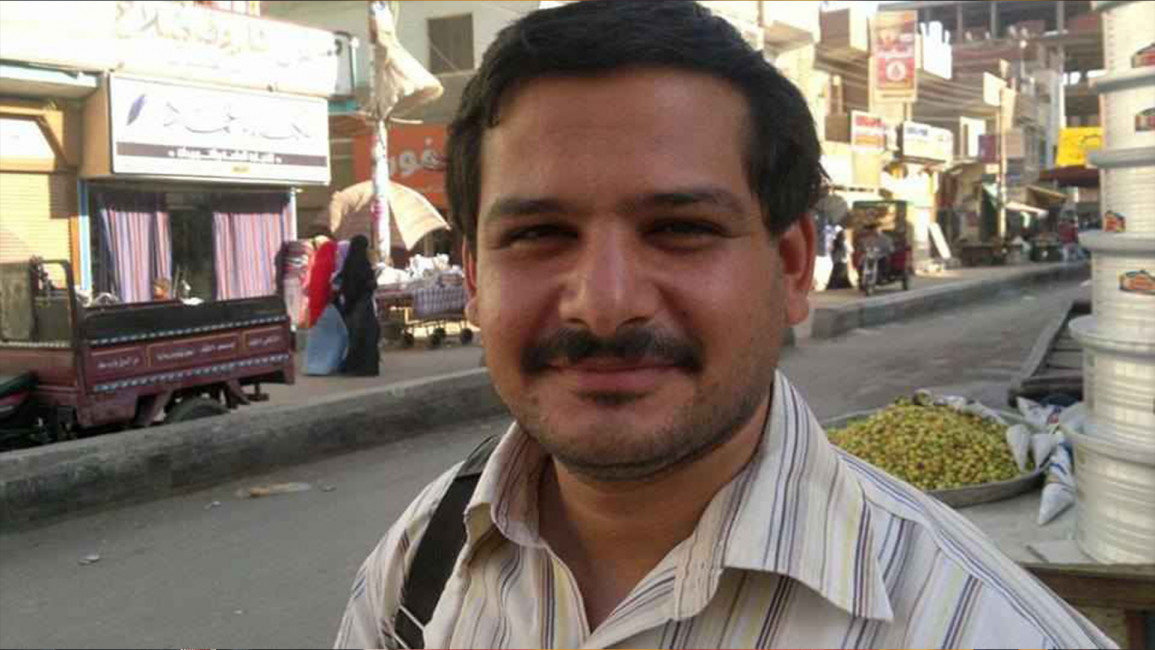Brotherhood leader 'killed by Egyptian security forces', says family
Brotherhood leader 'killed by Egyptian security forces', says family
Mujahid Hassan Zaki, a leading member of the Freedom and Justice party, was found dead after his arrest.
2 min read
The circumstances of Zaki's death remain unclear [al-Araby]
Egyptian security forces have been blamed in the death of Mujahid Hassan Zaki, a leading member of the Muslim Brotherhood's Freedom and Justice party in Beni Suef, south of Cairo.
Zaki was arrested in the capital three days ago, people close to the deceased said.
"He was arrested from his apartment in Cairo on Monday... and we received a call on Wednesday night informing us that his body had arrived at Samasta Central Hospital, with gunshot wounds to the chest and the back," said a statement released by Zaki's family.
The family said officials from the prosecution service ordered Zaki's burial before a coroner's report had been released. The family also said they had refused to sign a statement saying that Zaki had committed suicide.
The 30-year-old came from the village of Tala, south of Beni Suef, and had a five-year-old son and a three-year-old daughter. His family home in Beni Suef was raided at the start of the week.
Egypt's Ministry of Interior announced that Zaki received a fatal shot during a firefight with security forces as they tried to arrest him.
The ministry also claimed that Zaki was a "special operations" commander in Beni Suef in a supposedly armed wing of the Muslim Brotherhood - and was wanted in two cases of "violence and sabotaging ATM machines in the Biba region [of Beni Suef]".
"He was hiding in a rented apartment in the town of Samasta, in Samasta region, and when the forces raided the apartment, they were was shot at, prompting them to deal with the source of the fire, leading to the death of the mentioned Muslim Brotherhood member," a ministry statement said.
The Interior Ministry also claimed that Zaki had a weapon lying next to him.
Deaths in custody in Egypt are not unusual. The UK-based Arab Organisation for Human Rights has documented the deaths of 18 opposition figures this year.
A further 38 people are reported to have died in similar circumstances.
The Arab Organisation for Human Rights released a statement saying the frequency of such deaths indicates that they are the result of a systemic policy by Egyptian authorities.
Zaki was arrested in the capital three days ago, people close to the deceased said.
"He was arrested from his apartment in Cairo on Monday... and we received a call on Wednesday night informing us that his body had arrived at Samasta Central Hospital, with gunshot wounds to the chest and the back," said a statement released by Zaki's family.
The family said officials from the prosecution service ordered Zaki's burial before a coroner's report had been released. The family also said they had refused to sign a statement saying that Zaki had committed suicide.
The 30-year-old came from the village of Tala, south of Beni Suef, and had a five-year-old son and a three-year-old daughter. His family home in Beni Suef was raided at the start of the week.
Egypt's Ministry of Interior announced that Zaki received a fatal shot during a firefight with security forces as they tried to arrest him.
The ministry also claimed that Zaki was a "special operations" commander in Beni Suef in a supposedly armed wing of the Muslim Brotherhood - and was wanted in two cases of "violence and sabotaging ATM machines in the Biba region [of Beni Suef]".
"He was hiding in a rented apartment in the town of Samasta, in Samasta region, and when the forces raided the apartment, they were was shot at, prompting them to deal with the source of the fire, leading to the death of the mentioned Muslim Brotherhood member," a ministry statement said.
The Interior Ministry also claimed that Zaki had a weapon lying next to him.
Deaths in custody in Egypt are not unusual. The UK-based Arab Organisation for Human Rights has documented the deaths of 18 opposition figures this year.
A further 38 people are reported to have died in similar circumstances.
The Arab Organisation for Human Rights released a statement saying the frequency of such deaths indicates that they are the result of a systemic policy by Egyptian authorities.



